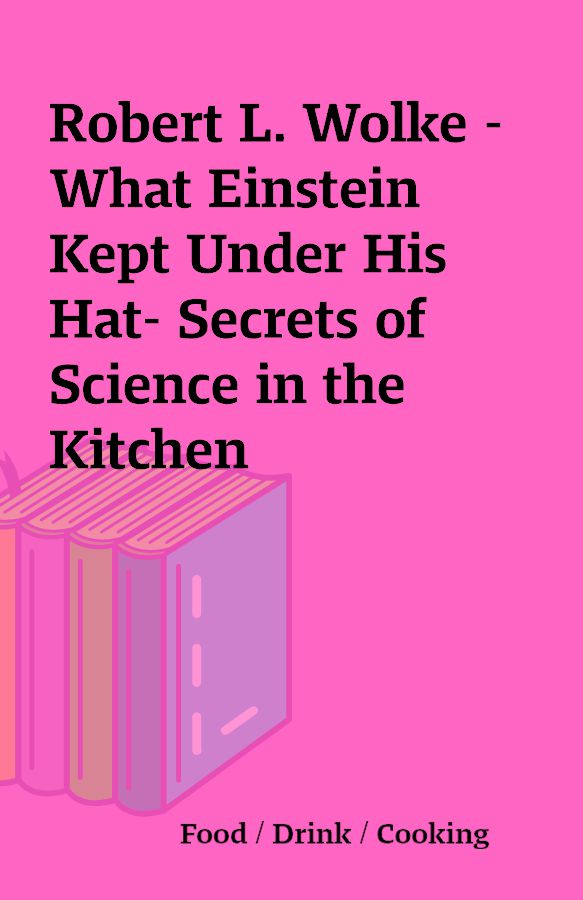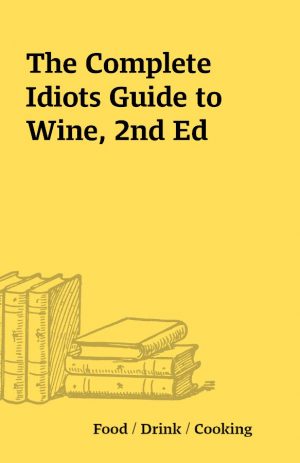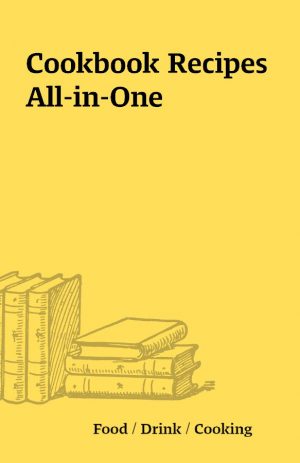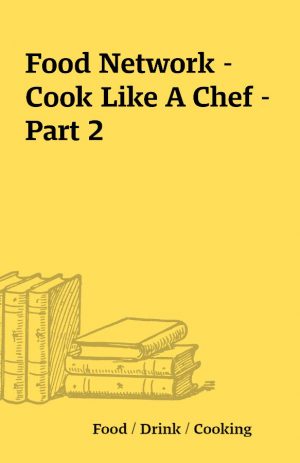Robert L. Wolke – What Einstein Kept Under His Hat- Secrets of Science in the Kitchen
What Einstein Kept Under His Hat – Secrets of Science in the Kitchen
[ 11 MP3 – 1 PDF ]
Description
What Einstein Kept Under His Hat : Secrets of Science in the Kitchen“All you have to do is ask ‘why’ and open to any page. Good luck putting it down.” —Alton Brown, host of Good Eats and Iron ChefHave you ever wondered why onions make us cry? Do you believe bananas contain more calories as they ripen and get sweeter? This sequel to the best-selling What Einstein Told His Cook continues Robert L. Wolke’s investigations into the science behind our foods. In response to ongoing questions from readers of his nationally syndicated Washington Post column, “Food 101,” Wolke debunks misconceptions with reliable, commonsense logic. And for exceptionally inquisitive cooks and scientists, he offers “Sidebar Science” features, which dig more deeply into the chemical processes that underlie food and cooking. Above all, What Einstein Kept Under His Hat provides indispensable information that will make readers better shoppers, cooks, and eaters.In this sequel to Wolke’s 2002 What Einstein Told His Cook, Wolke focuses on eight major food categories: beverages, dairy and eggs, vegetables, fruits, grains and carbohydrates, seafood, meats, and herbs and spices. From the best way to keep coffee hot to the chemistry behind braising, Wolke answers questions posed by regular cooks and consumers, Wolke reveals a wealth of fascinating food facts including:Why does refrigerated tea turn cloudy?The tannins (a loose collection of chemicals that give tea its flavor) within the tea fall out as tiny particles and create a cloud during cooling.If you take cream with your coffee, what is the best time to use it to keep the coffee as hot as possible?Adding the cream as soon as the coffee is poured. Even though the creamed coffee is a little cooler than black coffee, because there is more liquid in the cup, it will take longer for the temperature to drop; keeping the coffee hotter, longer, than if you had stirred in the cream after it had already begun to cool.Raw shrimp can be gray or pink. Is one fresher than the other?No, they’re just different species. Shallow water shrimp are sand-colored for camouflage while deep water shrimp tend to be pinker, their reddish pigments don’t reflect blue light and therefore don’t show up.Do hot peppers actually create heat?No, the capsaicinoids in hot peppers stimulate nerve endings in our mouths like heat does. Cooling our mouths with water is useless, alcohol can dissolve capsaicin oils, but milk and sour cream work best because their protein molecules drag the oils away.Are brick-oven pizzas really better?Yes, because brick and stone have high heat capacity and high emissivity, they retain a consistent level of heat and absorb far less infrared radiation than metal ovens. Because infrared radiation doesn’t penetrate beyond the surface of materials, more infrared radiation striking the pizza dough results in better browning and crisping of its surface.Why does aluminum cookware become discolored in the dishwasher?Aluminum is an unusual metal in that its susceptible to both acids and alkalis, such as sodium carbonate which is in nearly every dishwashing detergent and dulls the finish of aluminum products.For those curious about technical details, Wolke has added a new feature, “Sidebar Science,” which offers a deeper explanation of the chemical processes that underlie food and cooking.What Food Experts Are Saying About What Einstein Kept Under His HatOrdinarily, one would expect to wait outside a wizard’s gates through a long, cold winter, kneeling on broken glass, to be deemed worthy to possess even a handful of the truths Professor Wolke clearly, concisely shares herein. And yet all you have to do is ask ‘why’ and open to any page. Good luck putting it down.— Alton Brown, host of Good Eats on the Food NetworkBob Wolke is the rare mix of lab-coat scientist and raconteur, as if Albert Einstein’s mother had married Rodney Dangerfield’s fatter. He’s informed, amusing, and delivers clear answers as well as good, in-depth science. Who else but Bob Wolke could make denaturing proteins as exciting or as obvious as Cher’s oscar gown?— Christopher Kimball, Cook’s Illustrated founder and editorBob Wolke has a great talent for explaining the concepts behind how we work in the kitchen in plain and practical language, and that makes this book equally useful for the chef or home cook.— José Andrés, chef/owner, Jaleo Restaurant, Washington D.C.Bob Wolke writes about the hows and whys of cooking with clarity, humor, and passion. Who else can explain the science of braising or the mechanics of heat transfer and wtill make you chuckle?— Jack Bishop, executive editor, Cook’s Illustrated
You must be logged in to post a review.






Reviews
There are no reviews yet.